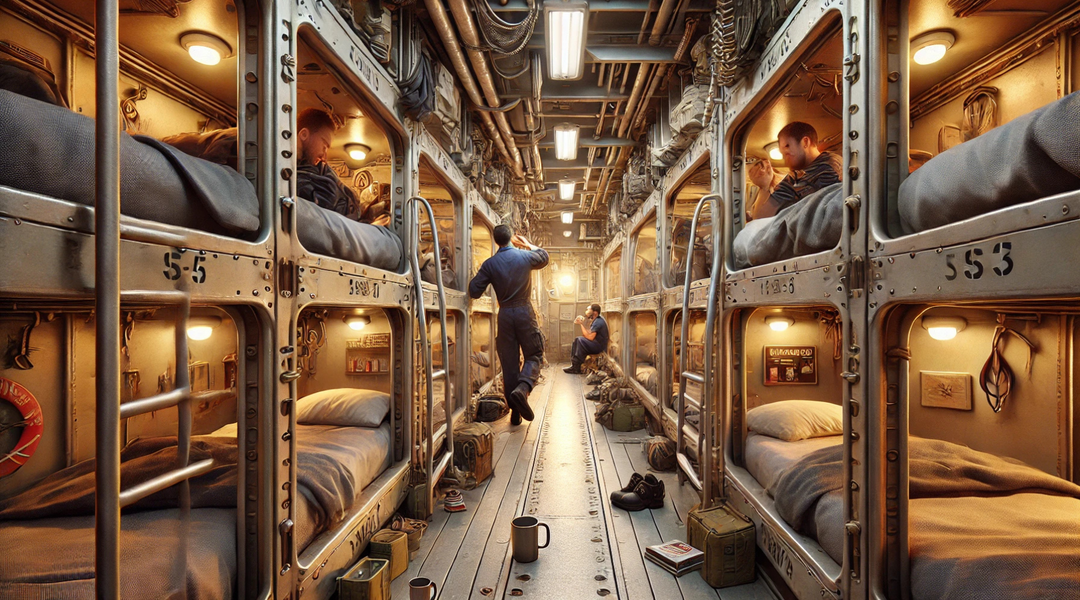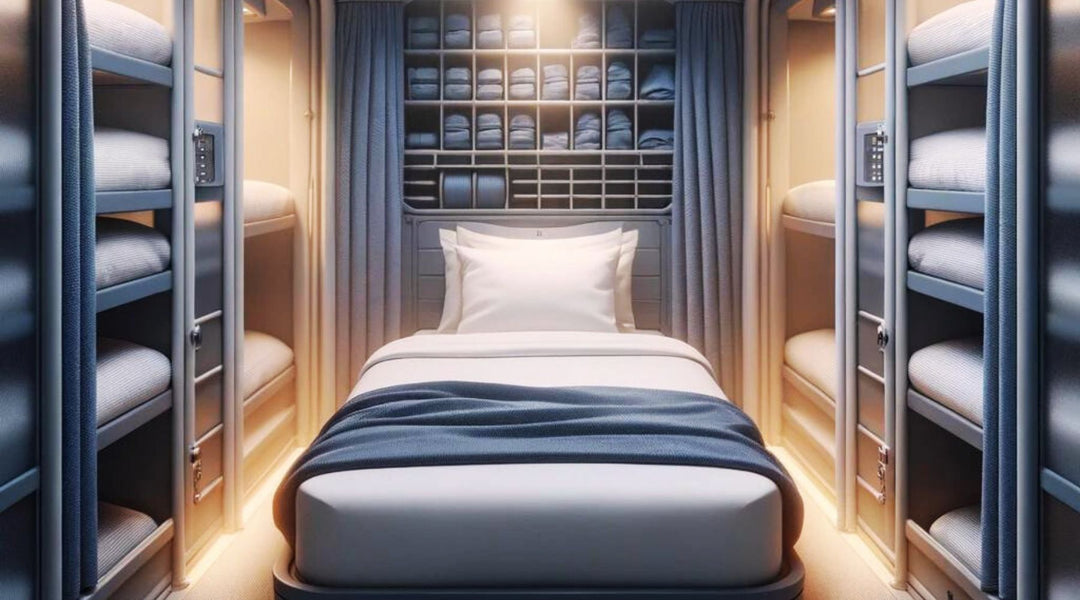Sleeping on a Boat: Importance of Sleep for Health & Well Being at Sea

At Fleet Sheets® we understand the importance of sleep for health and general well-being at sea, but we’re not alone - it’s something that numerous medical studies have confirmed and the health risks of insufficient sleep may surprise you.
According to the National Heart, Lung and Blood Institute, “sleep play a vital role in good health and well-being throughout your life. Getting enough quality sleep at the right times can help protect your mental health, physical health, quality of life, and safety.” This is especially true for service men and women who work long hours and are resting in tight, unfamiliar quarters.
The Consequences of Insufficient Sleep on Your Health
According to the Division of Sleep Medicine at Harvard Medical School, most people don’t get enough sleep. While sleep deprivation is often accepted as a sort of badge of toughness among hard-working people within the military and at other physically demanding jobs around the world, the truth is that not staying rested poses serious short and long-term health risks.
According to Harvard Medical School, “in the short term, a lack of sleep can affect your judgment, mood, ability to learn and retain information, and may increase the risk of serious accidents and injury.” Researchers also caution that a prolonged time period of sleep deprivation can lead to more serious health concerns including “obesity, diabetes, cardiovascular disease, and even early mortality.”
While it can be easy to dismiss some of these sleep-related health issues (and the truth is that one night of missed sleep is not going to have many negative effects on your performance), sustained periods of insufficient rest can be a very real concern to those in the military.
Safety Implications of Sleep-Deprivation on Military Personnel
According to a study conducted by the Department of Operations Research at Naval Postgraduate School titled “The Role of Sleep in the Military: Implications for Training and Operational Effectiveness,” the impact of fatigue and the effects of sleep-deprivation on military personnel is a special case as “the combined effects of a multitude of acute and chronic stressors – including severe sleep restriction – make the military population both unique and relevant to study.”
This report goes on to cite numerous scientific studies which demonstrate the dramatic effect of sleep deprivation on human performance in a laboratory setting, but within the military “there is often a reluctance to accept such laboratory findings, asserting that motivation and determination will allow individuals to perform in real-world environments despite fatigue and lack of sleep.”
The truth is that the importance of sleep for health of military personnel is a real concern and mental and physical toughness isn’t enough to overcome it. The Naval postgraduate study cited above gathered information from 5758 participants in combat, naval operations conditions and training and educational environments around the globe. The observation of daily sleep duration for each operational condition is shown in the figure below:

For military personnel, the findings on total and uninterrupted hours of sleep may not come as a surprise, but the takeaway from this study is that the data clearly illustrates the sustained lack of uninterrupted sleep naval and coast guard personnel can expect while serving at sea.
This amount of daily rest is insufficient to sustain a safe level of mental, physical and emotional health over prolonged periods, according to most studies and most accepted research. Additionally, you put your body at risk of losing physical strength and conditioning without adequately rest.
Military.com states that “The best training plans will not work if sleep and nutrition are neglected. Without adequate sleep (eight hours a night), there is not enough rest for muscle cell growth and repair.”
4 Ways to Ensure Adequate Sleep to Maintain Your Health & Safety at Sea
To help ensure that you’re getting enough sleep to stay safe, whether you’re in port, assigned shore duty or are currently deployed at sea we have a few suggestions.
- Avoid Oversleeping – This may seem counter-intuitive, but if you’ve been depriving yourself of sleep then oversleeping (sleeping for ten hours or more at one time) can do more harm than good. You can’t ever “catch up” on lost sleep, and changing your body’s normal sleep patterns can make it more difficult for you to fall asleep the following night, creating a cycle of inadequate rest. Aim for as close to eight hours as possible, but don’t oversleep.
- Create a Healthy Sleeping Area – There are several things that you can do to help keep your sleeping area calm, and at Fleet Sheets® we’re proud to offer several products which can help. Investing in our 400 thread-count, 100% cotton and Navy approved Luxury Sheet Set will help you create a more comfortable environment for rest and restoration. Our Curtain Caddy is another great investment which can help keep your favorite book or magazine, soothing music, or a calming picture nearby, enhancing your resting space and making it feel more like home.
- Don’t Be Afraid of Hard Work – It’s proven that hard work during the day can help improve your uninterrupted sleep at the end of the day. Make sure that you’re never satisfied with being a couch potato – even on your days off. Working hard will help you fall into a deep, restful sleep at the end of the day, making the most of the time you have to sleep.
- Think About When You Exercise – While daily exercise is great for helping you maintain healthy, sound sleep at the end of each day (see #3 above), you should try to avoid exercising 2-3 hours prior to sleep as it will make you have a more active and less restful period of slumber. Interestingly, studies have found the same is true of watching television just before bed (or while in bed).
Value Your Health & Safety: Stay Rested While at Sea
What’s clear in all of the research cited in this article is the importance of sleep for health and for your emotional, physical and mental well-being. While this is true for anyone in any job, it’s especially true for our servicemen and servicewomen at sea. You endure some of the most demanding physical tasks in the world and you do so on limited rest and in what are not the most glamorous sleeping conditions.
Investing in quality creature-comforts to help improve your rack on board ships and submarines will certainly pay off during your time at sea. Visit Our Store to take a look at some of the affordable products we offer to keep you well rested, safe and healthy.
Sources:
http://www.nhlbi.nih.gov/health/health-topics/topics/sdd/why
http://healthysleep.med.harvard.edu/healthy/matters/benefits-of-sleep
http://healthysleep.med.harvard.edu/healthy/matters/consequences
http://www.webmd.com/sleep-disorders/sleep-studies
http://www.military.com/military-fitness/health/importance-of-sleep
http://www.dtic.mil/dtic/tr/fulltext/u2/a550390.pdf







Leave a comment